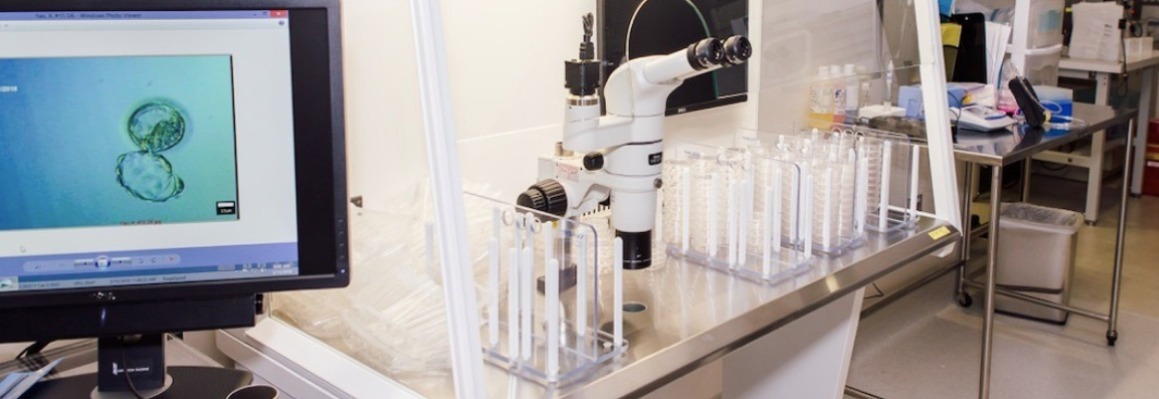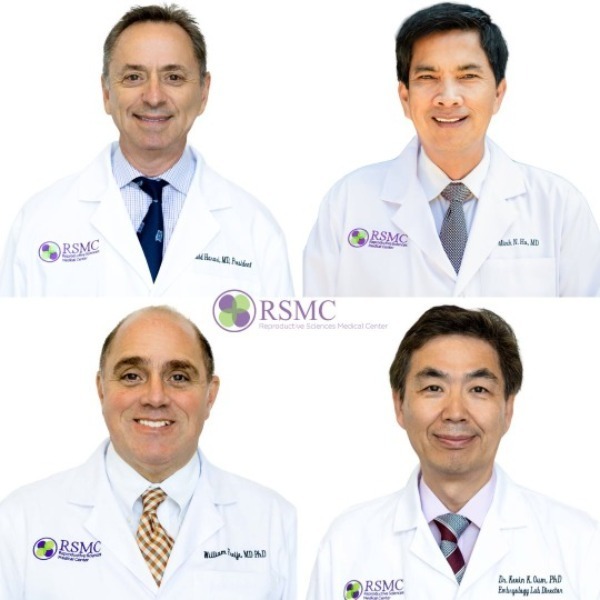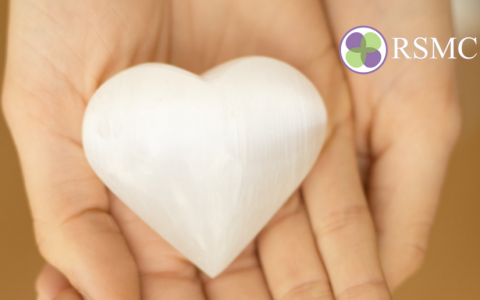Egg Freezing in Singapore (2024): How Does it Work, Process, Cost - RSMC Singapore

What is Egg Freezing? How Does It Works?
Egg freezing is the most common method of fertility preservation. With this option, a woman can delay becoming pregnant without the concern of reduced egg quality. Women may consider egg freezing if they have certain medical conditions, such as cancer treatment, and wish to preserve their fertility. In recent years, egg freezing has also become a popular choice for single women who want to take control of their future fertility.
The entire egg freezing process typically takes 2-3 weeks, and around 6 doctor visits are necessary to monitor progress with blood tests and ultrasounds. The process of egg retrieval is conducted under IV sedation to ensure you won't feel any pain during the procedure. After successful retrieval, all mature eggs are frozen using the most advanced technique called vitrification. They are then securely stored in liquid nitrogen at -196°C until you're ready to use them.
Egg Freezing In Singapore: Age & Limit (Starting July 1, 2023)
The Singaporean government adjusted the egg freezing policy on July 1, 2023, changing the age limit for egg freezing from 21 - 35 years old to 21 - 37 years old. Single women are also able to freeze their eggs in Singapore, but if they intend to use the frozen eggs for in vitro fertilization (IVF) treatments, they will need to be married before utilizing them. As Singapore currently does not permit the transportation of eggs, those concerned about potential limitations due to lack of legal marital status or sexual orientation restrictions for using frozen eggs are advised that individuals planning to undergo IVF treatment as single individuals or same-sex couples pursuing IVF with donated sperm can consider directly seeking egg freezing services at the RSMC Reproductive Medicine Center in the United States.
Who Might Consider Egg Freezing.
Egg freezing has become a popular option for modern women who want to take control of their family planning timeline. The demand for egg freezing is mainly divided into medical and personal needs. The medical reasons include a lower than normal AMH value, the desire to preserve fertility before cancer treatment, the absence of a uterus or uterine function decline that requires surrogacy in the United States, premature ovarian failure, and the need to preserve fertility before ovarian surgery. It is recommended that individuals with these conditions freeze their eggs as soon as possible to secure some healthy eggs for future fertility.
Medical Needs
-
Preserve fertility before cancer treatment
-
Wait for sperm of their husbands during the IVF process
-
Without an uterus, uterine dysfunction and plan to find a surrogate in America.
-
Loss of ovaries, autoimmune diseases, family history of early menopause
-
Women who take medication that affects fertility or considering gender transition surgery.
None medical needs
-
Women over the age of 30 who are waiting for Mr. Right.
-
Want a baby of their own without marriage. ( They could undergo IVF in the future.)
-
Lesbian partners who want to have a baby. ( They could undergo IVF with donor sperm in the future.)
-
Delaying Childbearding: Women with the desire to pursue education, career, or other personal goals.
Egg freezing can help women pause the fertility clock until they're ready to start a family. Whether you're waiting for your career to take off, looking for the right relationship, or a lesbian who wants a biological child, freezing your eggs provides the potential to preserve your fertility until you're ready.
Your frozen eggs in Asia can be shipped to RSMC for later embryo creation, regardless of whether you are married or not.

AMH and FSH are common indicators of women’s fertility
Your levels of Anti-Mullerian hormone (AMH) can help determine how many eggs you have left in your ovaries. For a fertile woman, the typical AMH level is between 1.5 and 4.0 ng/ml. Having a low AMH may indicate that your ovarian reserve is low. However, it is important to note that the AMH value only represents the quantity of eggs and not their quality. The number of eggs to freeze depends on various factors, including age, family history, previous medical history, and especially the quality of the eggs. The number is individualized and must be determined by your fertility doctor based on your circumstances and fertility plan.
Follicle-stimulating hormone (FSH) is also monitored during fertility treatment. FSH helps with the growth of follicles, which occurs on a monthly basis. A "day 3" FSH test can offer great insight into your ovarian reserve, especially for women with irregular menstruation or low menstrual volume. Many women who have a high FSH level tend to have a low AMH level. A value below 8 indicates good ovarian function, while a value over 25 is close to menopause. For women who are unable to go to the clinic for FSH testing on the 3rd day of their menstrual cycle due to a busy work schedule, an AMH test can be done instead. The Anti-Mullerian hormone is one of the reproductive hormones that change throughout your lifetime and can be tested on any day of your menstrual cycle. It is important to note that even if your AMH and DAY 3 FSH levels are normal, women's eggs still age as they get older. Therefore, it is recommended to freeze your eggs at a younger age for better chances of becoming pregnant in the future.
Why ladies Freeze Their Eggs?
Egg freezing was originally developed to preserve eggs for women with cancer prior to undergoing chemotherapy. Now, more and more women are opting to store their eggs for later use because it gives them control over their reproduction timeline. Regardless of whether she is single or in a same-sex relationship, a woman can use egg freezing to preserve her fertility. Thanks to advancements in health industry techniques, frozen eggs are now viable for decades, with over 95% surviving the thawing process and retaining the same quality as fresh eggs. As fertility function decreases with age, women over 35 should consider freezing their eggs while they are still young and preserving them for the future.
The Best Age Of Women Egg Freezing?
WHAT IS THE BEST AGE TO FREEZE YOUR EGGS?
Most reproductive medical centers recommend that women aged 30 to 35 plan for egg freezing if they do not have a fertility plan in the near future. Although there is no specific "optimum age", the quality of eggs diminishes significantly after age 37, and the effectiveness of freezing eggs is greatly reduced. Therefore, the earlier eggs are frozen, the better their quality and the higher the probability of successful IVF in the future.
HOW MANY EGGS SHOULD I FREEZE?
There is no exact number or rule when it comes to the number of eggs to freeze. It depends on your age, family history, previous gynecological/medical history and especially the quality of eggs. The number is individualized and must be determined by your fertility doctor, depending on your circumstances.
How To Prepare Your Egg Freezing?
Before starting the egg freezing process, there are several steps you need to take to ensure success.
Step 1: Fertility Assessment
The first step in the egg freezing process is to undergo a fertility assessment, which includes testing for Anti-Mullerian Hormone (AMH), six hormones, and an ultrasound. This will provide your doctor with valuable information about your current fertility status and determine how many eggs you have left in your ovaries. Your doctor will use these results to create an individualized treatment plan.
Step 2: Medication and Monitoring
Once your treatment plan has been established, you will begin taking medication on the third day of your period for 10-12 days. During this time, you will need to visit the clinic several times for blood tests and ultrasound monitoring to ensure that your follicles are developing properly.
Step 3: Trigger Shot and Egg Retrieval
When your eggs have matured, you will receive a ‘trigger shot’ of HCG (human chorionic gonadotropin) to encourage them to finish maturing. After approximately 36 hours, your doctor will schedule the egg retrieval procedure. The egg retrieval process is done as an outpatient procedure under IV sedation, and you will not feel any pain during the procedure. After the procedure, you may experience mild discomfort, which will pass quickly.
Step 4: Egg Storage
All mature frozen eggs are then placed in a storage facility until you decide to use them. It is recommended to freeze at least 16-20 eggs if you plan to ship them to another country for thawing and fertilization using in vitro fertilization (IVF) when you are ready to have a baby.
Step 5: Future Planning
You can discuss with your doctor if an additional cycle is necessary based on your age and future family plan. Our guide will help you understand what egg freezing involves and weigh your options.
In conclusion, egg freezing is an effective way to preserve fertility. With proper preparation and medical supervision, you can achieve success in egg freezing and have control over your reproductive timeline.

Egg Freezing Step-by-Step Process
-
Fertility Assessment and Consultation:
Before starting the treatment cycle, a fertility assessment is required. This involves the evaluation of AMH, six hormones, and an ultrasound to determine the current fertility status. The AMH value will help determine the number of eggs left in the ovaries. A consultation with our experts will be dedicated to enhancing your understanding and setting a realistic goal.
-
Ovarian Stimulation:
Once the personalized plan has been created, fertility medications are started on the third day of your period and continued for 10 to 12 days. During this time, you'll need to visit the clinic several times for blood tests and ultrasound monitoring to keep an eye on follicle development.
-
Egg Retrieval:
When your eggs have matured, a “trigger shot” of HCG is given to encourage eggs to finish maturing. About 36 hours later, the egg retrieval procedure is scheduled. The egg retrieval process is an outpatient procedure done under mild anesthesia.
-
Egg Freezing:
The retrieved eggs are then frozen in liquid nitrogen at -196°C using vitrification, the most advanced freezing technology. With over 95% egg survival rate, the frozen eggs can be viable for over decades. At RSMC, the pregnancy rate following egg thawing, fertilization, and embryo transfer is up to 80%.
Overall, the egg freezing process lasts about two to three weeks and provides a very efficient way to preserve fertility. Once the eggs are retrieved, they are stored in a particular storage facility until you decide to use them. You can discuss with your doctor if an additional cycle is necessary based on your age and future family plan. Our guide will help you understand what egg freezing involves and weigh your options.
The Cost and Duration of Egg Freezing in US
You have to stay in America for around 2 to 3 weeks. Egg freezing generally costs between $7,000 – $12.000, plus the cost of the medications. The total cost is about 20000 US dollars.
Undergoing IVF in the Future
The wife has to stay in America for 4-5 weeks for embryo transfer.
IVF for single for the future
The female has to stay in America for 4-5 weeks for embryo transfer, if she uses the donor sperm from the sperm bank.
Surrogacy for the future
You don’t have to go to America until the baby is born. The estimated cost is roughly 160,000 to 170,000 US dollars.
What is going to happen?
Egg freezing is the process in which women present healthy eggs at young age, regardless as we age our fertility function decreases.Egg freezing is the process in which women preserve healthy eggs at young age, regardless as we age our fertility function decreases. Upon retrieval, your eggs will be taken to the lab, where they are cooled instantly to sub-zero temperature. These frozen eggs are then placed in a particular storage facility, then thaw and fertilize them using in vitro fertilization (IVF) when you are ready to have a baby.In recent times, the most advanced method of freezing eggs is a process called “Vitrification.” Vitrification freezes eggs so rapidly that the water molecules don’t have time to form ice crystals instead of solidifying into a glass-like structure.
What Happens After Egg Freezing?
The egg retrieval is performed under general anesthesia, as the doctor will puncture the vagina to retrieve the eggs and the wound is as small as a needle hole, so you won't feel anything. During egg freezing, short-term use of medications will not have adverse effects on the body clinically. If you have a history of breast cancer or are at high risk, you can inform your doctor before the egg freezing procedure begins so that your doctor can pay special attention to the medication or adjust the dosage. The main risk of egg freezing is ovarian hyperstimulation syndrome (OHSS), but it is rare and easily preventable. Besides, it can be avoided by having a physical examination prior to the start of egg freezing to determine if you have polycystic ovarian syndrome or high estrogen levels. In addition, the medication in the United States is very strictly controlled so that OHSS will not occur due to overdosing. An ovulation medication cycle lasts about 10 to 12 days, and the medication in the US can be fully metabolized after one menstrual cycle without causing additional burden to the body. In addition, all drugs in the US have to pass strict testing by the FDA, and all drugs that can be marketed are safe for human use.
Risks Associated with Egg Freezing
Egg freezing can come with certain risks, but these can be minimized by seeking consultation with fertility experts and following a personalized treatment plan. Some of the potential risks include:
-
Swelling from stimulation medications
-
Abdominal pain
-
Swollen ovaries, ascites, and enlarged waistline
-
Risk of anesthesia
-
Post-operative wound bleeding or infection
Ovarian hyperstimulation syndrome (OHSS) (less than 5% chance)
It is important to note that OHSS is a rare complication, and it can often be prevented by undergoing a physical examination before starting the egg freezing process to check for conditions such as polycystic ovarian syndrome or high estrogen levels. Additionally, strict medication control in the United States helps prevent overdosing and minimize the risk of OHSS. All medications in the US must pass strict testing by the FDA and are deemed safe for human use. If you have a history of breast cancer or are at high risk, inform your doctor before starting the egg freezing process so they can take necessary precautions.
Average Cost of Egg Freezing in Singapore and RSMC's Services
Egg freezing is becoming an increasingly popular option for women who want to preserve their fertility for future use. In Singapore, RSMC offers affordable egg freezing services, including testing, stimulation, medication, and more. The average cost of egg freezing and using the eggs to get pregnant in the future with the help of RSMC is around $30,000.
To ensure transparency, RSMC provides a clear price sheet for all treatments in both English and Chinese. It is important to note that egg freezing is not just about preserving eggs; it is about having a baby in the future. In the US, a marital relationship is not essential for IVF treatment. Singles or lesbian partners can have a healthy baby through egg retrieval and then thaw and fertilize the eggs using in vitro fertilization with a sperm donor.
RSMC has a team of highly experienced physicians with a collective experience of over 150 years, and our laboratory director, Dr. Kevin Oum, is a certified High-Complexity Clinical Laboratory Director (HCLD) who leads a team of experienced lab technicians, ensuring the highest quality work. RSMC also has one of the largest IVF laboratories in Southern California, which is accredited by CPA as the highest level, guaranteeing safe and convenient egg harvesting and storage. With an on-site laboratory, the risks associated with transportation from the clinic to the lab are eliminated.
RSMC offers high-quality and affordable egg freezing services, ensuring that women have the opportunity to preserve their fertility and have a healthy baby in the future.
Why choose RSMC for egg freezing?
Most of the people who want to freeze their eggs are women who have not found a suitable partner yet or who still do not want to have children. For those who are not looking for marriage or lesbian couples, even if they can freeze their eggs, it is not possible to use them without a husband in Asia. The United States not only has the highest IVF success rate in the world but also has the most liberal fertility policy, allowing both singles and same-sex couples to undergo IVF treatment. Therefore, egg freezing in the US is a viable option that allows you to pursue your career and do what you like without giving up the opportunity to have children in the future. On the other hand, if you have a partner you love in the future, you can use your partner's sperm, and singles/same-sex couples can use donor sperm to create embryos, and pregnancy can be carried by you or a surrogate in the USA. If you have any questions regarding egg freezing, please feel free to contact us, and we will provide you with a detailed consultation.

Let RSMC Support Your Family Building Plan
RSMC, with clinics located in San Diego and Irvine, California, was founded in 1997 and has 28 years of clinical experience in infertility treatment. We have a team of nationally recognized gynecologic fertility specialists and embryologists, and our bilingual staff can communicate directly with international patients in their native language. We have the world's only fully accredited CPA laboratory, capable of creating high-quality embryos, and our IVF success rate is over 80%.
Schedule a free consultation with our doctors and know more about the process and cost. Please add Line/wechat:rsmctw (whatsapp: +1 858-342-6046)
About RSMCOther
-
2024/07/11eggfreezing
Essential Knowledge for Egg Freezing: What You Need to Know!
-
2024/04/08eggfreezing
Egg Freezing Cheat Sheet! Things You Need to Know Before Freezing Your Eggs
-
2022/01/25eggfreezing
Is there an Age Limit on Egg Freezing ? Two Common Questions about Egg Freezing



